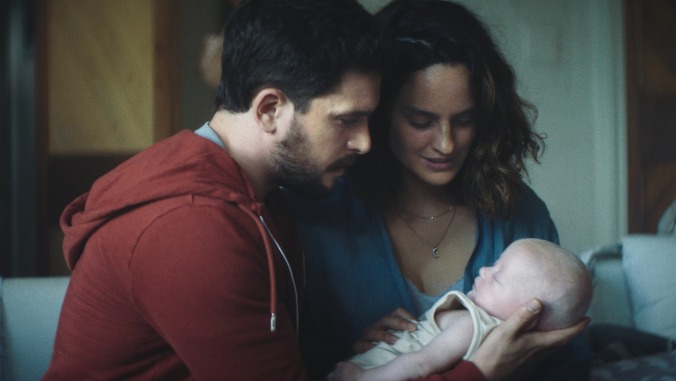Baby Ruby review: motherhood gets the modern horror treatment
Kit Harington and Noemie Merlant star as new parents battling postpartum issues in a mind-bending but uneven drama

The mommy blogger life doesn’t suit the faint or fitful of heart— any YouTube video essay can tell you that. Fostering a perfectly imperfect online persona is delicate work, and appearing both coiffed and spontaneous takes dexterity and dedication. The flip side: one crack in the carefully crafted sculpture can wreck everything. And that’s without taking into account the seemingly endless stream of ills that already afflict the modern mother.
In Baby Ruby, the feature film directing debut of Tony-nominated playwright and screenwriter Bess Wohl, the stark duality of postpartum depression serves as both a skeleton in the closet and a monster under the bed. Despite some unevenness, Baby Ruby is a fervently uncomfortable and aesthetically compelling depiction of new motherhood, an unsettling horror exploration buoyed by strange imagery and a no-holds-barred lead performance from Noémie Merlant.
Merlant does Mia Farrow’s Rosemary proud as Josephine, a tightly wound lifestyle blogger and mother to our titular bundle of joy. Jo throws her own baby shower ahead of Ruby’s arrival to assure it’s executed perfectly. She hesitates to seek advice from her peers on her constantly caterwauling child for fear of addressing the obvious: She’s not an infallible parent.
The driving force in Baby Ruby, however, isn’t type-A Jo’s imperfections—it’s the identity crisis they induce. Welcoming her baby home after a bloody birth, Jo starts distrusting everyone around her, from a mysterious group of new mothers to her husband, an ethical butcher named Spencer (Kit Harington). Most of all, Jo fears Ruby, a Gerber Baby-adorable calamity waiting to happen. As she muscles her way through the physical and mental chaos of new motherhood, Jo is dogged by a perceived inability to understand her child and a rising fear that Ruby is angry with her. In one scene, Jo asks a woman evaluating her home’s baby-proofing if the home would be “safe from Ruby” instead of “safe for her.” It’s a precise, simple moment that skillfully sets up the film’s back half.
